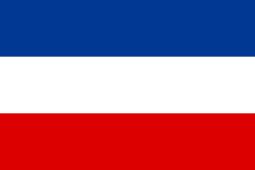3rd unofficial Chess Olympiad
The 3rd unofficial Chess Olympiad was held by German Chess Federation (Grossdeutscher Schachbund) as a counterpart of the 1936 Summer Olympics in Berlin with reference to 1924 and 1928 events.[1] FIDE’s position regarding the Munich Olympiad was set out on pages 10–11 of the minutes of its Congress in Warsaw in August 1935. In short, given that parts of the German Chess Federation’s statutes were anti-Semitic, FIDE could have no involvement in the Munich Olympiad. However, since Germany had agreed, for that event, to drop its ban on Jews, FIDE’s General Assembly voted to leave Federations free to decide whether or not to participate.[2] Finally, many Jewish chess players took part in the event. Significantly, the "Jewish" teams of Hungary (i.e. Lajos Steiner, Endre Steiner, László Szabó, Ernő Gereben, Kornél Havasi) and Poland (i.e. Paulino Frydman, Miguel Najdorf, Henryk Friedman, Leon Kremer, Henryk Pogorieły) beat "Aryan" Germany. Also Jewish masters from other countries played leading role there (i.e. Movsas Feigins, Gunnar Friedemann, Imre König, Lodewijk Prins, Isakas Vistaneckis, Emil Zinner, etc.).
The Schach-Olympia 1936 took place in Munich between August 17 and September 1, 1936. In that extra-Olympiad (non-FIDE) 208 participants, representing 21 countries, played 1680 games. The Munich unofficial Olympiad was the biggest team competition ever held.[3]
Results
Final
# Country Points 1 .svg.png) Hungary
Hungary 110.5 2  Poland
Poland 108 3 .svg.png) Germany
Germany 106.5 4  Yugoslavia
Yugoslavia 104.5 5  Czechoslovakia
Czechoslovakia 104 6  Latvia
Latvia 96.5 7  Austria
Austria 95 8  Sweden
Sweden 94 9  Denmark
Denmark 91.5 10  Estonia
Estonia 90 11  Lithuania
Lithuania 77.5 12  Finland
Finland 75 13  Netherlands
Netherlands 71.5 14  Romania
Romania 68 15  Norway
Norway 64.5 16  Brazil
Brazil 63 17  Switzerland
Switzerland 61.5 18 .svg.png) Italy
Italy 59 19  Iceland
Iceland 57.5 20  France
France 43.5 21  Bulgaria
Bulgaria 38.5
Team medals
Individual medals
See also
- 1st unofficial Chess Olympiad (Paris 1924)
- 2nd unofficial Chess Olympiad (Budapest 1926)
- Against Chess Olympiad (Tripoli 1976)
References
- ↑ OlimpBase :: Chess Olympiad, Munich 1936, information
- ↑ Edward Winter: The 1936 Munich Chess Olympiad
- ↑ Stanisław Gawlikowski: Olimpiady szachowe 1924-1974, Wyd. Sport i Turystyka, Warszawa 1978